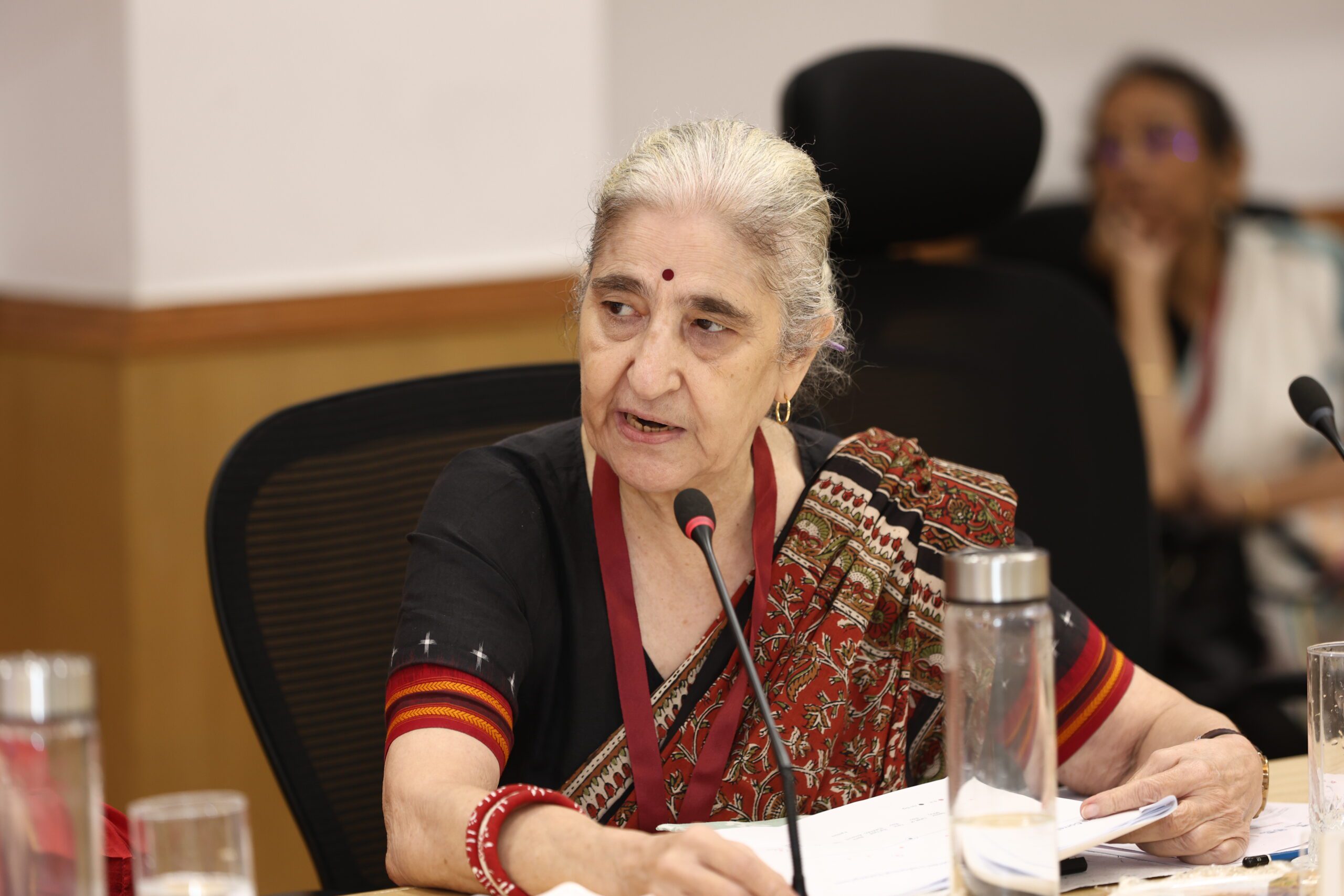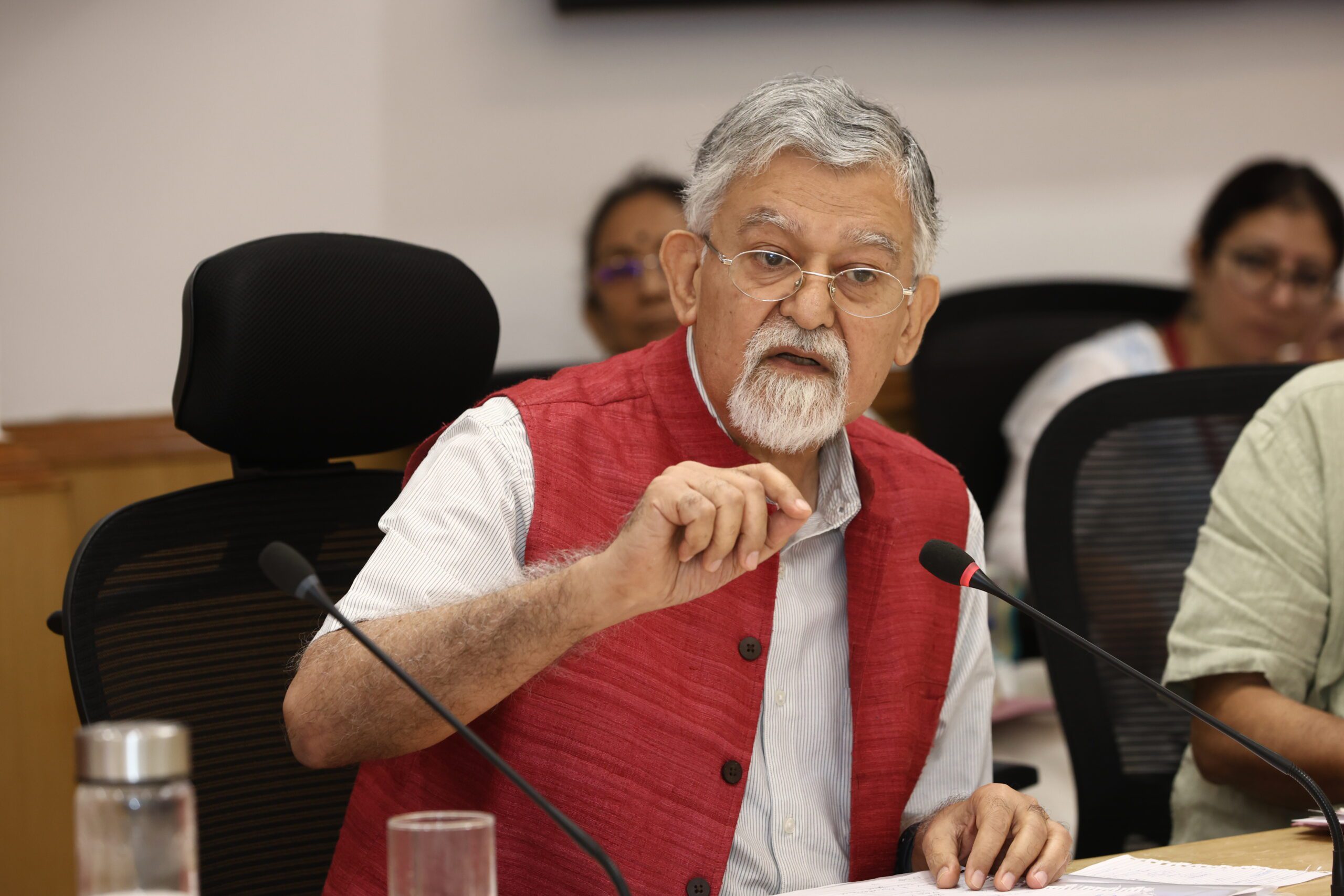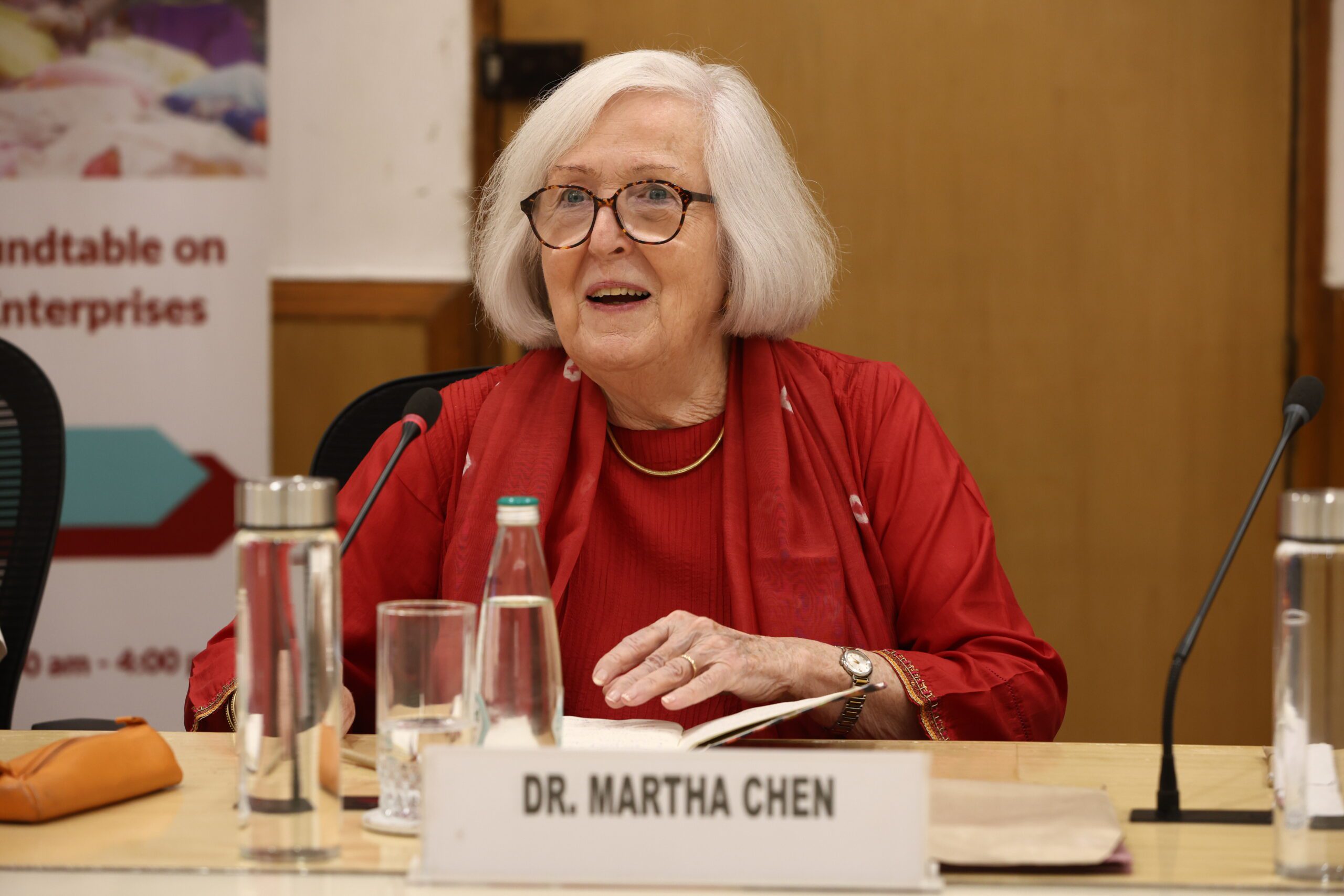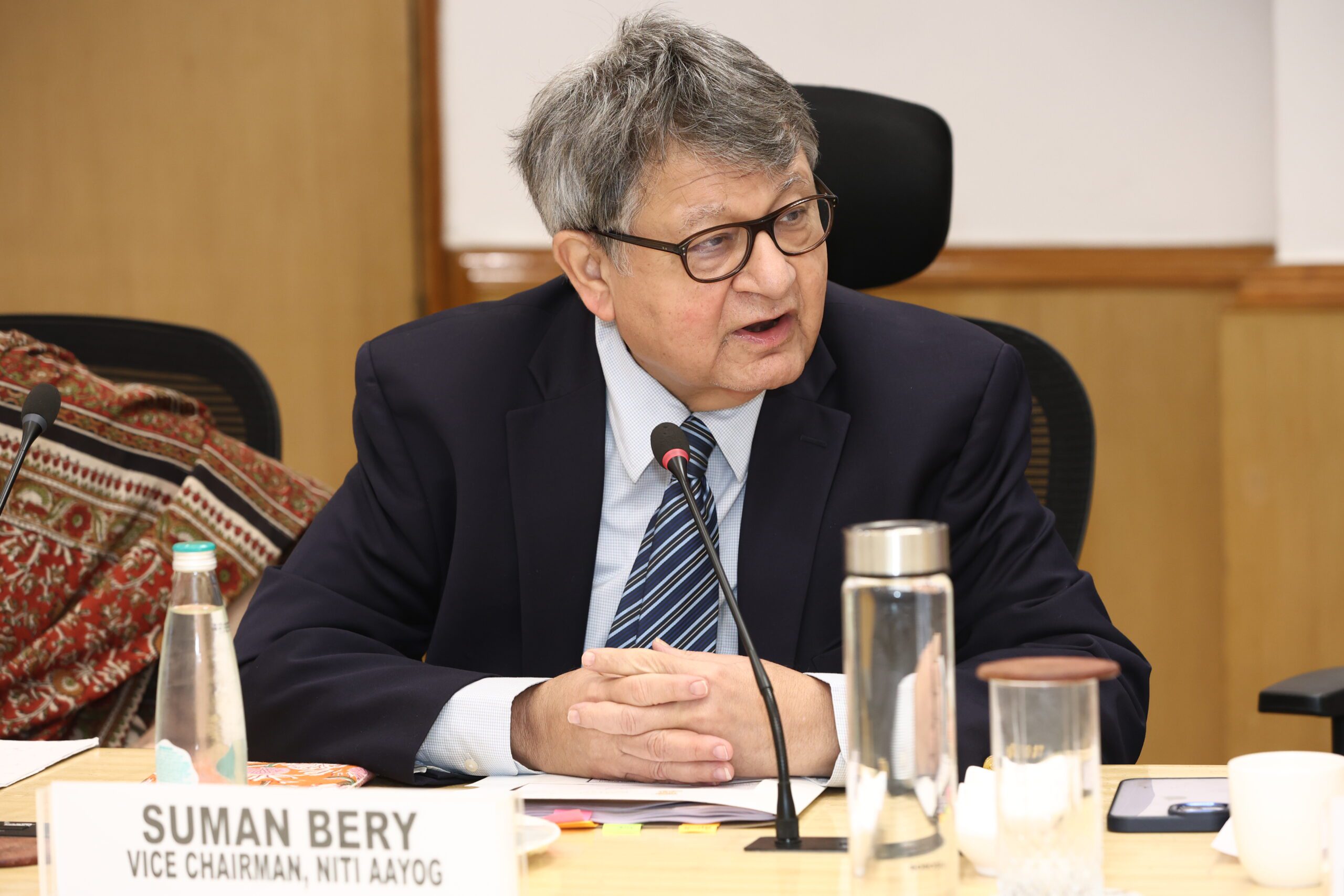To illustrate the importance of India’s informal economy, consider a street vendor in a bustling corner of Mumbai. Early each morning she buys fruits and vegetables from a wholesale market and sets up her stall, arranging the fresh produce under a makeshift canopy. Soon, the neighborhood comes alive; local families, restaurant owners, and passersby purchase fruits and vegetables from her, forming the backbone of a daily supply chain that is as vital as it is vulnerable. Despite her critical role, she operates without a secure vending site or institutional support, reflecting the reality faced by over 90 percent of India’s workforce who are informally employed. Statistical estimates show that urban informal workers and self-employed are engaged in various sectors, including construction, retail trade, transportation, and non-trade services (Chen and Raveendran 2014, updated from 2011).
To better understand the significance, characteristics and performance of informal enterprises, particularly those operated by women, a project entitled “Enterprises in India” was launched with support from a Mittal Institute Faculty Research Grant. The project is led by Martha (Marty) Chen, Associate of the Mittal South Asia Institute at Harvard University and former professor at Harvard Kennedy School and the Harvard Graduate School of Design, and Renana Jhabvala, President of SEWA Bharat, who have worked together for over 40 years – bridging activism, statistics, research and policy – to support livelihoods and enterprises in the informal economy, both in India and around the world.
The Enterprises in India project, begun in mid-2024, has two broad goals reflecting two strands of work. The first goal and strand of work is to generate a better understanding of – and more appropriate policy response – to informal enterprises. The second goal is to generate a better understanding of women’s informal enterprises with a special focus on women’s collective enterprises including what regulations and policies they seek to reform and what support they need to grow and become more resilient.
On October 6, 2025, the project partners including SEWA Bharat, Institute for Human Development, UNU WIDER and WIEGO with support from the Mittal Institute organized a “Policy Roundtable on Informal Enterprises in India” hosted by NITI Aayog, the premier public policy think tank of the Government of India. This roundtable represented the culmination of the project’s initial phase during which the research team conducted a comprehensive analysis of national datasets on informal enterprises. The event served as a forum for the project partners to present their findings, and the lessons for data collection and policy going forward, to a select group of policy makers, statisticians, researchers, academics, and social activists.
Opening the session, Renana Jhabvala underscored the need to connect research, statistics, and action to strengthen policies supporting informal enterprises and Marty Chen introduced the project and the project partners. Both emphasized that “Statistics in the hands of the workers is power,” emphasizing how accurate data can drive meaningful policy reform.

Renana Jhabvala, President of SEWA Bharat.
Arvind Virmani, Member, NITI Aayog, reflected on the interlinkages between job creation and skills in the informal economy. “Jobs and skills are two sides of the same coin,” he remarked, underscoring how investments in skills development can stimulate demand and productivity growth.

Arvind Virmani, Member, NITI Aayog.
The project partners then made four presentations. Two presentations shared findings from analyzes of recent national data on informal enterprises by Kunal Sen, UNU WIDER, and Renana Jhabvala and Nandini Dey, SEWA Bharat. Two other presentations explored data gaps and challenges, with one talk delivered by Marty Chen, Mittal Institute and WIEGO, and another by G. Raveendran, formerly with the Central Statistical Office.
In her presentation, Marty Chen shared findings on the barriers and constraints affecting the productivity of urban informal enterprises, drawing on evidence from four field studies of home-based workers, street vendors, and waste pickers in India. To move the discussion towards practical solutions, Chen outlined actionable reforms, emphasizing the need to increase positive support to informal enterprises including financial support and inclusive policies and practices, while also reducing negative practices which undermine the productivity of informal enterprises, including daily harassment and periodic evictions.

Martha Chen, Associate of the Mittal South Asia Institute at Harvard University and former professor at Harvard Kennedy School and the Harvard Graduate School of Design, and Co-founder and Founding International Coordinator of WEIGO.
Addressing the participants, Suman Bery, Vice Chairperson of NITI Aayog, congratulated SEWA and WIEGO for their long-standing commitment to evidence-based advocacy and reflected on the way forward:
“For India to grow faster, more people need to participate in the workforce at higher levels of productivity. This means creating opportunities for women—especially rural women, who make up the largest untapped labor pool—to move into higher-productivity roles. The central question is whether manufacturing can become the key driver of that transformation.”

Suman Bery, Vice Chairperson of NITI Aayog.
With over 70 participants, the roundtable represented an opportunity for an informed discussion – which Suman Bery characterized as a “public good” – on critical findings, such as the pervasive constraints faced by informal enterprises, the underrepresentation of women-led units, and significant data gaps that hinder effective policymaking. Insights generated during the session highlighted opportunities for targeted policy interventions, underscoring the need for evidence-based strategies to foster inclusive growth and enhance the resilience of informal sector enterprises.
For a summary of the roundtable, its background and proceedings, listen to Marty Chen’s interview below:
Martha Chen summarizing the discussions at the Policy Roundtable on Informal Enterprises in India.
Written by Angarika Datta, Communications and Outreach Manager.
☆ The views represented herein are those of the interview subjects and do not necessarily reflect the views of the Mittal Institute, its staff, or its steering committee.
